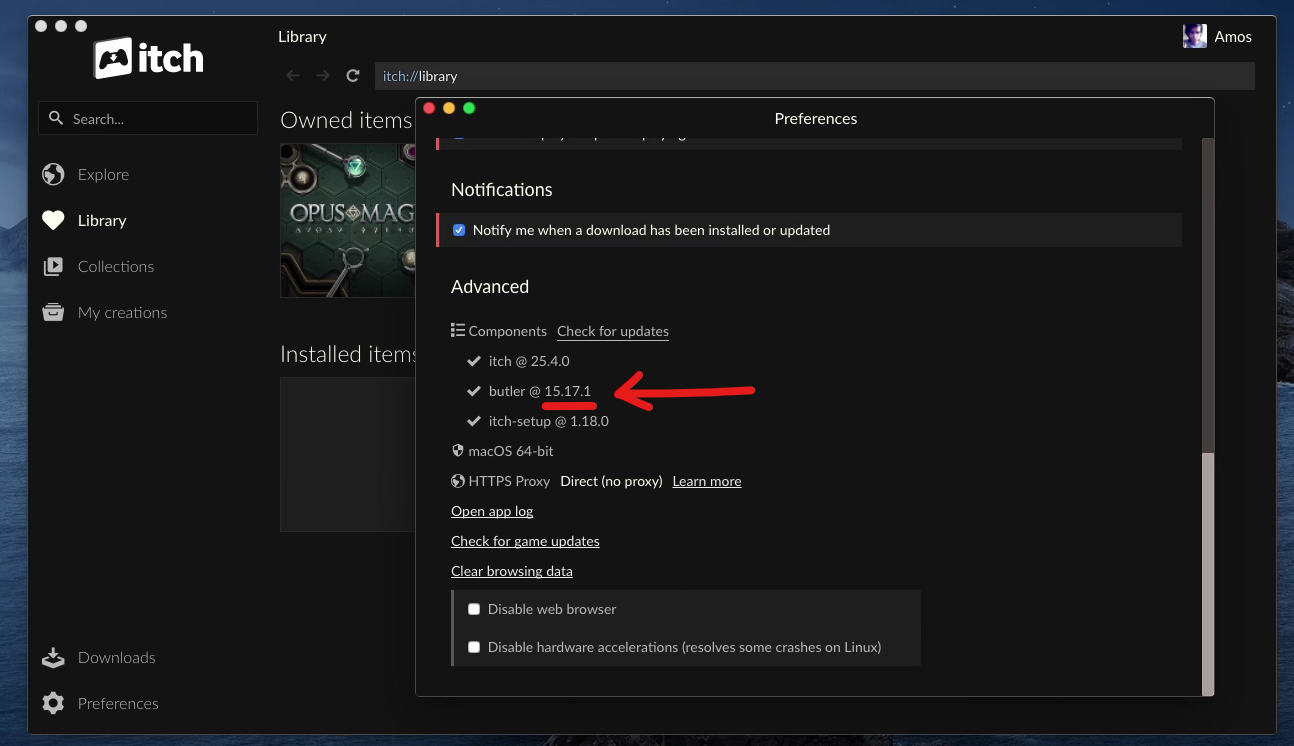Extraction (itch) Mac OS
Is your Mac up to date with the latest version of the Mac operating system? Is it using the version required by a product that you want to use with your Mac? Which versions are earlier (older) or later (newer, more recent)? To find out, learn which version is installed now.
'Try not to panic in the picnic!' 'It seems like you decided to start acting healthy. Unfortunately, your past meals haven't taken your abandonment so lightly and they want you gone! Go contact itch.io support or talk to the discord server about it. For mac anyways please pleas mac i literally showed goose to all my friends and now i really really want a medow please mac mac mac os mac os ac os mac mac mac mac os mac os thank u sm u literally gave life to my computer ok bye dont forget to get it on mac please. Compatible With: Mac OS X 10.15 (Catalina), Mac OS X 10.14 (Mojave), Mac OS X 10.13 (High Sierra), Mac OS X 10.12 (Sierra), Mac OS X 10.11 (El Capitan), Mac OS X 10.10 (Yosemite), Mac OS X 10.9 (Mavericks), MacOS X 10.8 (Mountain Lion) Now let’s see how you can use this tool! How to Extract Images From PDF Mac.
If your macOS isn't up to date, you may be able to update to a later version.
Which macOS version is installed?
From the Apple menu in the corner of your screen, choose About This Mac. You should see the macOS name, such as macOS Big Sur, followed by its version number. If you need to know the build number as well, click the version number to see it.
Which macOS version is the latest?
Extraction (itch) Mac Os Catalina
These are all Mac operating systems, starting with the most recent. When a major new macOS is released, it gets a new name, such as macOS Big Sur. As updates that change the macOS version number become available, this article is updated to show the latest version of that macOS.

Mac Os Download
If your Mac is using an earlier version of any Mac operating system, you should install the latest Apple software updates, which can include important security updates and updates for the apps that are installed by macOS, such as Safari, Books, Messages, Mail, Music, Calendar, and Photos.
| macOS | Latest version |
|---|---|
| macOS Big Sur | 11.3 |
| macOS Catalina | 10.15.7 |
| macOS Mojave | 10.14.6 |
| macOS High Sierra | 10.13.6 |
| macOS Sierra | 10.12.6 |
| OS X El Capitan | 10.11.6 |
| OS X Yosemite | 10.10.5 |
| OS X Mavericks | 10.9.5 |
| OS X Mountain Lion | 10.8.5 |
| OS X Lion | 10.7.5 |
| Mac OS X Snow Leopard | 10.6.8 |
| Mac OS X Leopard | 10.5.8 |
| Mac OS X Tiger | 10.4.11 |
| Mac OS X Panther | 10.3.9 |
| Mac OS X Jaguar | 10.2.8 |
| Mac OS X Puma | 10.1.5 |
| Mac OS X Cheetah | 10.0.4 |
When deploying a project to a certain customer’s servers, for a couple of reasons, we have to do it by manually copying over the files to a certain directory over RDP and SSL VPN. To speed up the transfer, we zipped the files on our development machines, since it’s quicker to copy one big file than many small ones.
Unzipping on the (Windows) server was a bit tedious (right-click, extract here, yes overwrite, etc.) so we cooked up a small VBScript that did the extraction. The code below is saved as ‘unpack.vbs’.
The code contains the hardcoded name of the zip file, gets the absolute path names of the source and destination, followed by instructions to copy the files from the zip to destination. The ’16’ in the options means to overwrite without asking. Finally, there’s some cleanup taking place.
What this script allows us to do is instead of manually unzip, choosing to overwrite, etc, just double click on this script file. That’s one itch less.
In a follow-up post, I’ll show you how we zip the files we want on OS X.